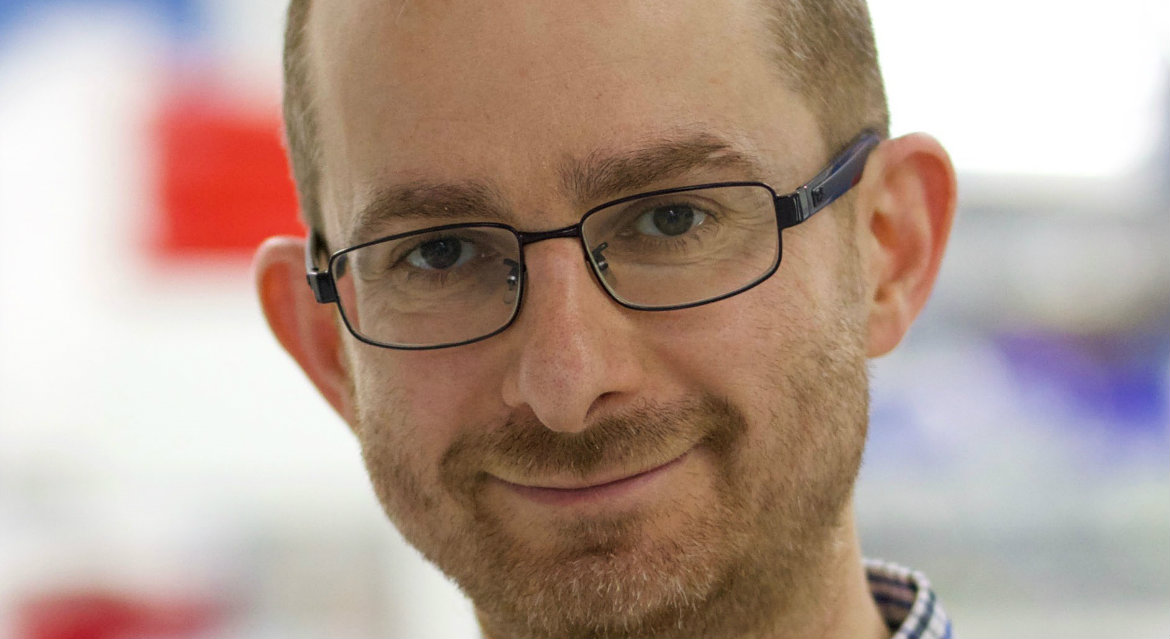£2million award for cancer researcher
Published On Sun 17 Sep 2017 by Grant Hill

A University of Dundee scientist has been awarded £2million to explore the role that one of the most fundamental processes in cell biology plays in cancer.
Professor Karim Labib will receive the grant from Cancer Research UK to study mechanisms that preserve genome integrity during the final stages of chromosome replication in animal cells.
The process by which cells copy their own chromosomes and then make new cells is vital to all of life. Chromosomes contain the genetic blueprint that makes us what we are and this information must be copied perfectly for new cells to survive and carry out their function. When the copying process goes wrong, it can lead to cancer as abnormal cells are created.
Proteins in the cell combine to build a molecular ‘machine’ called the replisome, which plays a vital role in copying the double helix of DNA that is at the heart of each chromosome. The replisome is only built once during the life of each cell, and is then disassembled to ensure that cells just make one single copy of each chromosome.
Professor Labib and colleagues in the MRC Protein Phosphorylation and Ubiquitylation Unit (PPU) at Dundee will study a small worm called Caenorhabditis elegans to try and understand more about mechanisms for replisome disassembly. This work is important in the context of cancer research, since the team’s previous research with the worm suggests that inhibiting replisome disassembly might kill certain kinds of cancer cells.
“I am very grateful to Cancer Research UK for their support, which will enable us to expand our work with animal cells and hopefully gain insight into an important process that is defective in particular human cancers, suggesting future approaches to new therapies,” said Professor Labib.
“We found that cells have two pathways for replisome disassembly. Inhibiting just one of these doesn’t necessarily harm cells, but blocking both at the same time is lethal. Translating this idea to humans, a drug that inhibits the first pathway should specifically kill tumour cells that lack the second pathway, without hurting the rest of the body.”
The work is another significant step towards understanding a key process at the heart of human cells, which is vital for developing new treatments to tackle human cancer.
Dr Catherine Pickworth, Cancer Research UK spokeswoman, said, “It is exciting to see Professor Labib taking his work on the nuts and bolts of cell replication and progressing it from yeast to animal cells.
“Hopefully his research will help to understand if targeting these processes could suggest new approaches to targeting cancer cells in humans. Cancer Research UK funds innovative research like this because it is a vital part of finding new and better ways to treat cancer and we’re looking forward to following his work as it progresses.”
For media enquiries contact:
Grant Hill
Press Officer
University of Dundee
Nethergate, Dundee, DD1 4HN
Tel: +44 (0)1382 384768
Mobile: 07854 953277
Email: g.hill@dundee.ac.uk